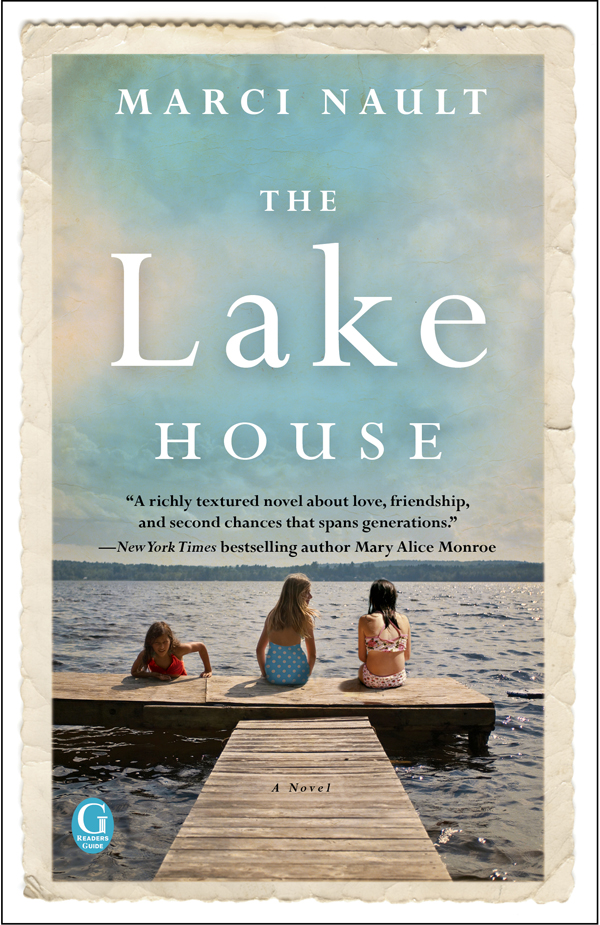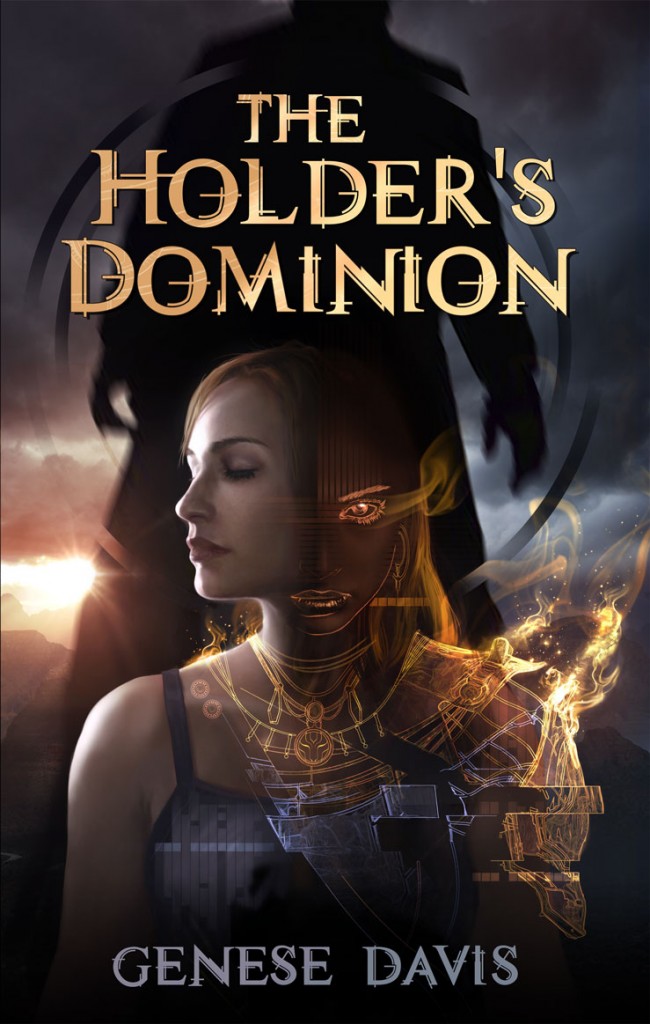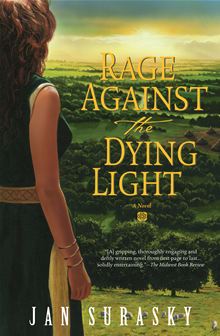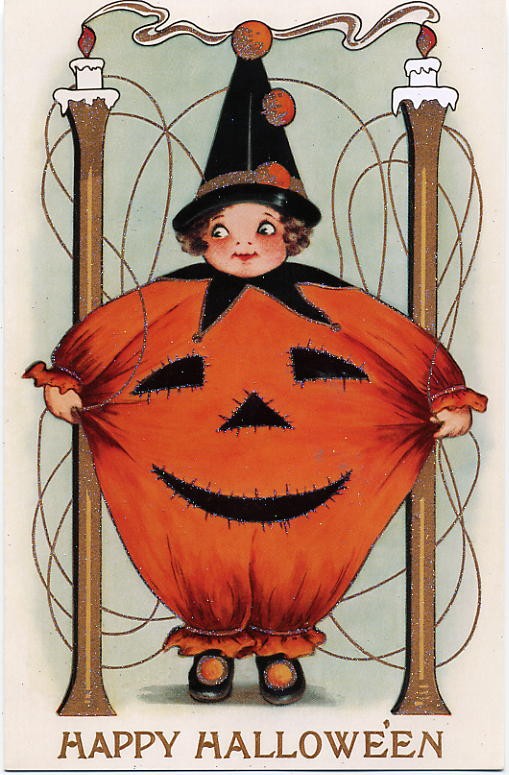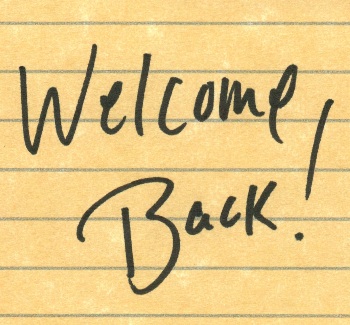Marci Nault is living proof that dreams come true. In 2008, Marci asked herself a question that would change the trajectory of her life forever. She asked, “What do I want from this life? If I wasn’t afraid, and didn’t play by the rules, how would I live?” Her answer was a life-list of 101 Dreams Come True that led her on a journey of self-discovery and adventure. Having completed almost ninety of her life dreams including publishing her novel The Lake House, Marci knows what it means to take risks, go after her deepest desires, live beyond fear, and to fall in love with life, the world and herself.
Hear what Marci has to say about inspiration and taking chances.

 1. Tell us the story behind the story. How did THE LAKE HOUSE come to be?
1. Tell us the story behind the story. How did THE LAKE HOUSE come to be?
I was living in California in an apartment where I wasn’t happy, and every day I desperately searched for a new home. While in Boston for Christmas, I had a dream that I found my perfect house on a lake and bought it without doing any research. When I moved in, everyone in the small community was over the age of seventy, and some of the women were determined to set me up with their grandsons. I woke and knew that I had to write the story.
2. What was the most challenging aspect of writing THE LAKE HOUSE?
I’ve never been a patient person. The saying, “God grant me patience now!” has always been my motto. Writing takes incredible patience. This book took many revisions, in part because there were many characters, and it spanned over fifty years with numerous flashbacks, and also in part because I was a new writer learning the craft. Each time I did a revision I wanted to finish it as quickly as possible, but writing doesn’t work that way. The characters speak when they’re ready. Sometimes I have no choice but to work around the clock, and at other times I stare at the television hoping my emotional and mental state will fire up.
But there’s something magical about finding a storyline or figuring out a plot. I feel fulfilled when a story is buzzing in my brain. I love getting to know my characters and seeing the world through their eyes: I laugh, fall in love, cry and get ticked off with them. I feel incredibly blessed to be able to write and share my stories with people.
3. What is the message you want readers to take away from your book?
The main theme of the book is the human need for a place to belong and the softness of home. I wanted to create a world where the reader could escape into the nostalgia of the Norman Rockwell time period.
I also wanted people to realize that our elders are important in our lives. We can learn from their stories and their life experience. We tend to care so much about youth and fear age that we don’t want to see our elderly. When I researched this book I spoke to women from the World War II generation, and they told the best stories. I was surprised by their spunk and liveliness in spite of illnesses or injuries. I think we’ve lost something in our lives by dismissing older people because they might not keep up with modern technology or are possibly set in their ways. We have this idea that life is over after a certain age, but in truth many people fall in love, travel the world, or take up new sports in their final years.
Also, sometimes what we think we want in life is the exact opposite of what we really need. If Heather had moved into a community with all young people, she probably would’ve continued to be uncertain of herself, always trying to keep up with what she believed she should be. By moving into a place where everyone was older, she was able to gain confidence and find what her heart desired.
4. Describe your background.
I’ve been obsessed with the mind and how it either gets in our way or helps us to achieve great things. For most of my childhood I knew the person I wanted to be in the world but had no idea how to become it. This caused me to study psychology, mental training, and those around me. I think this is what allows me to write emotions well. Though I was an honor student throughout school, in some ways I’ve been rebellious about going the traditional route in life. I chose not to go to college because I didn’t want to start my life out with the heavy debt of an Ivy League school. I went to Massage Therapy School so I would always have a trade to rely on. I started speaking about the mind and meditation in my late teens, which led to me starting a small publishing and distributing business that I sold in my mid-twenties to pursue a career in fiction. I invested in real estate – buying, living in and fixing up a few select properties and then selling them for a profit, which allowed me to take a few years off to write The Lake House.
5. Describe your writing schedule. Do you outline? Any habits?
I wish I had a writing schedule—it would make my life easier. But in truth, I never know when inspiration is going to strike: shopping, running errands, driving, hiking in the woods, and quite often on planes. I get some of my best ideas on flights. When I was writing The Lake House I had a “Beautiful Mind” thing going on. My walls were covered with papers: doodles of the community, historical time lines, character descriptions, and plots. Once the first draft was done I printed it all out and marked each character’s storyline with different colored post-it-notes. Then I worked out the entire plot on a dry-erase board to see the arc of the story. This time, I’m starting with the dry-erase board.
I tend to laugh at my first outlines because I know the story and the characters are going to lead where they want to go—I’m going to find out where they’re taking me when they’re good and ready. I like it this way, even if my editor and agent would prefer that I know the entire story ahead of time.
6. What books are on your nightstand? What are you currently reading?
Bel Canto by Anne Patchett is my all time favorite book. It’s like eating really great chocolate. Chocolate because I love her descriptions. A New Earth by Eckhart Tolle because it helps me with my patience issue and Stephen King’s On Writing. At the moment I’m reading Love Anthony by Lisa Genova.
7. Which authors inspire you?
Anne Patchett, Lisa Genova, Kristen Hannah, Jodi Picoult, Mary Alice Monroe.
8. What have you learned from this experience?
First of all—PATIENCE! Just because something doesn’t happen in my timeframe doesn’t mean that it won’t happen. I’ve also learned that sometimes, even though it’s hard for me, I need to ask for help. Writing a book can be consuming and challenging, sometimes even a little exposing emotionally and you need the help of friends and family to get you through.
9. What is your advice for aspiring writers?
Writing is an art that takes revisions and patience. The first draft is just a sketch, the second colors in the lines, the third bring out the details that you forgot to see because you were busy writing the big picture, and the fourth is the flow to make the story seamless and easy for the reader to follow. With each revision I learned and I became a better writer.
I liken the editorial process to a coach and an athlete. I think it’s important if you’re not working with an editor to get a professional critique. Many times these aren’t expensive and they can help strengthen your weaknesses.
10. What are you working on now?
I’m working on my second novel, The Memory of You (working title).
11. In 2008 you asked the question, ‘What do I want from this life?’ It was that question that prompted you to create your inspiring website, www.101DreamsComeTrue.com. Can you tell us about www.101DreamsComeTrue.com?
In June of 2008, I was probably the saddest I’d ever been in my life: I had recently left an eight-year relationship and was living in California away from most of my family and friends; my brother had almost died from MRSA and was still in the hospital; my family was fighting; and the house I was renting was being sold. I didn’t have a career or a plan and I couldn’t remember the last time I’d laughed. I sat under a tree in Sonoma, CA—lost, scared, and trying not to cry while praying for reprieve.
Something told me to make a list of all the times I’d been happiest in my life, and I wrote down about fifteen things that included some previous travel or learning something new. I looked at the list and realized I was happiest when I was going after my dreams. I decided to ask, “What if I wasn’t afraid of failure? What if there weren’t any rules? What if I didn’t worry about money? What would I want?”
I began to write with conviction: I wanted to live in Florence for a month; return to figure skating and really train and compete; learn to dance salsa and tango; travel the world; lift someone up who’d lost all hope; find an incredible group of friends; become a published author and have writing be my career; own my own business. When I was done, I looked at the list and I had added 85 items to the first fifteen. I wrote one last thing—to laugh so hard with a stranger my sides hurt. I looked at the list and thought, yeah right, there’s no way I can complete 101 of my biggest dreams. I folded it up and put in my pocket planning to throw it away.
That night, at the hotel in Napa where I was staying, the concierge invited me to have a drink with her and some other guests. Within an hour she had me laughing so hard that I had to go to the bathroom because I was coughing and crying so hard that my stomach hurt. I saw myself smiling in the mirror and I realized that one of my dreams had come true, and I thought about the list. I took it out of my pocket and wondered, “What if?”
I went home and wrote all of the dreams on a dry-erase board. Across the top I wrote, “Settle For Nothing Less Than Magnificence in Life.” At that moment, I made the decision that I would pursue my dreams with everything I had. I would go after the life I desired with all my heart. One by one, my dreams began to come true and as my life drastically changed people asked me what I was doing. Friends encouraged me to share my story, and though I wanted to keep it private, I realized that maybe my story could inspire others.
12. How has “101DreamsComeTrue” changed your life?
Since beginning my journey, my life has drastically changed. I have the career of my dreams. I live in a house I own outright. I train in figure skating and compete as an adult at the national level. Incredible friends who love to get the most out of life surround me. My family is back together (my brother is healed and healthy). I have an amazing community of salsa dancers. I own my own online bridal business, Elegant Bridal Designs. I’ve traveled the world and had incredible experiences that have made me realize that this earth is an incredible gift and it’s filled with the friendliest people.
More importantly, I’ve changed as a person. In the past I believed that I had to make everyone else happy in order to deserve my happiness. I thought by being selfless and putting myself last that I would be loved in return and someone would put me first. I didn’t stick up for myself until I was near the breaking point and I let people walk on me and use me. That person no longer exists. Now I know that I’m responsible for my happiness, and that when I give to myself, I have more for others, but I give only what I can. Most importantly I’ve realized that we are so much bigger than we can see ourselves being, and only in dreaming can we know how amazing our life is meant to be.
13. You’ve checked off a lot of items on that list. Will you be creating a new list or adding to your 101 Dreams?
The list is almost 90% complete and as I strive to finish all of my dreams I’ve wondered about what’s next. I’m always going to want to explore and learn. This world is an incredible playground so I’m certain I’ll keep adding to the list. But most of all I want to enjoy the life I’ve built: figure skating, salsa dancing, writing novels, traveling, spending time with loved ones, and inspiring others to go after their dreams. People think of this as a “bucket-list” of what I want to do before I die, but for me it is a “life-list” of how I want to live.
14. What is the best piece of advice you can give someone who would like to create his or her own Dream List?
It’s funny because I feel like a motivational poster on Facebook when I say this, but it’s completely true. Dream bigger than you can see yourself being. Go after the things that will hurt if you don’t accomplish them. Those are the things you fear the most because they matter the most. You won’t have any idea how you’re going to accomplish any of your dreams, but doorways will open where you least expect them. And I know it’s kind of a cliché, but you have to be willing to walk through them. The fear will never go away. I always feel like I’m jumping off cliffs wondering if I have the right materials to build my wings on the way down before I crash. I still get scared each time I attempt something new or go after the unknown, but the fear just means I want it more than I even realize. And age doesn’t matter!

